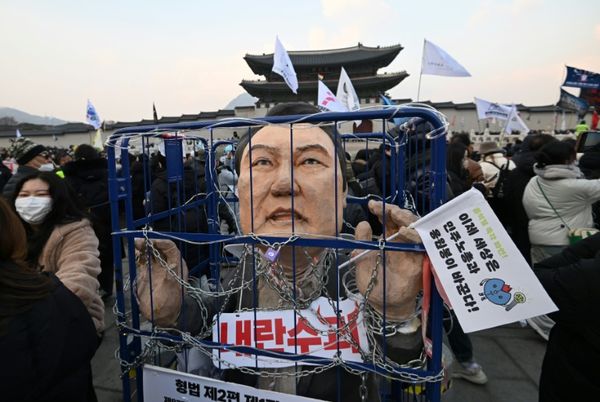
"Dumb Money", which chronicles the infamous GameStop short squeeze of January 2021, was released in theaters across the U.S. on Sept. 29. Starring Paul Dano as Keith Gill, the now-famous Reddit user and hobbyist investor credited with spurring the meme stock's rise to unprecedented heights, the film examines the dramatic short squeeze from a variety of angles.
Prominent characters include Gill, other retail investors and Reddit users who frequented the r/WallStreetBets messageboard, the co-CEOs of digital trading platform Robinhood (HOOD) -), and some of the hedge fund executives who were eventually forced to capitulate after seeing the value of their short positions plummet during the squeeze.
While the film certainly dramatized aspects of the Reddit-fueled stock surge and its consequences by filling in the blanks where necessary, most of its central characters are based on real people.
Here, we examine "Dumb Money’s" cast and discuss the real-world individuals the film’s central characters are based on.
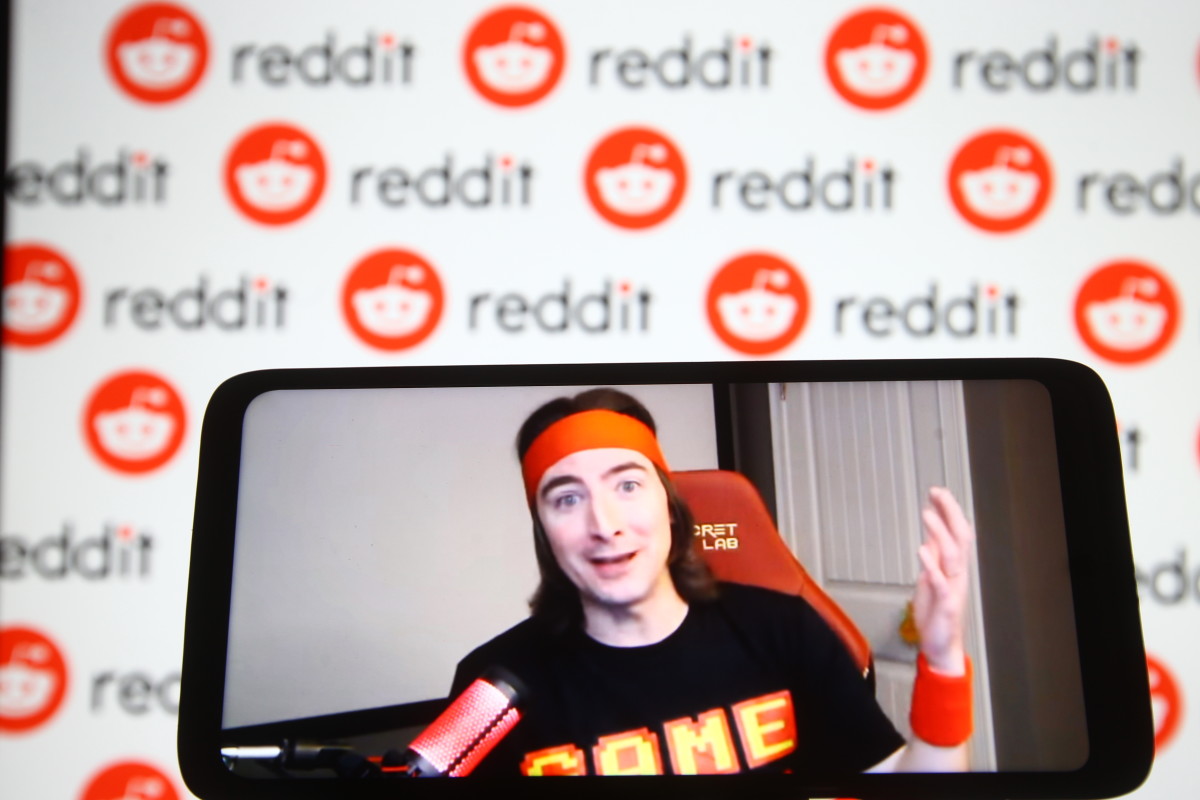
Keith Gill (played by Paul Dano)
Keith Gill, played by Paul Dano, is "Dumb Money’s" central protagonist. In the film, Gill is portrayed as the retail investor’s David to Wall Street’s Goliaths — AKA hedge funds.
In real life, Gill was a middle-class 34-year-old living with his wife and child in Massachusetts. Until his resignation at the peak of the short squeeze in late January 2021, he was a financial analyst at life-insurance brokerage MassMutual who researched and traded stocks on the side, occasionally uploading videos about his stock positions and value investing strategy to YouTube via his “Roaring Kitty” channel.
He posted these videos to the subreddit r/WallStreetBets, a non-traditional investing messageboard focused on large, risky stock trades known colloquially as “YOLOs.”
During 2020, Gill uploaded several videos to the messageboard in which he disclosed his large position in GameStop, claiming the company was undervalued and overshorted by Wall Street’s “smart money” (hedge funds and other institutional investors). He also argued that the company wasn’t losing as much market share to online retailers as the short sellers betting on the brick-and-mortar retailer’s demise seemed to believe.
The subreddit rallied around Gill’s strategy, and soon, the bulk of its users were buying GameStop (GME) -) shares and call options in a collective bid to send the stock “to the moon.” And in the film, just like in the real world, it worked. GME’s stock price surged by around 1,500% in less than a month, and hedge funds were forced to buy back shares at significant losses to cover their short positions.
Overall, the film’s depiction of Gill is fairly accurate. While we can’t know exactly how he spoke and acted with his wife, parents, or brother, all of whom have minor roles in "Dumb Money", the portrayals of his YouTube uploads and testimony to Congress are largely drawn from the source material — cat t-shirts, beer, red headband and all.
The film also depicts Gill as a dedicated runner, often visiting a local track-and-field oval in an attempt to run a 4-minute mile. The real-life Gill was a runner as well, recording a personal-best mile time of 4 minutes and 3 seconds while attending Stonehill College in 2008. Other plot points, such as the death of Gill’s sister, are also true to life.
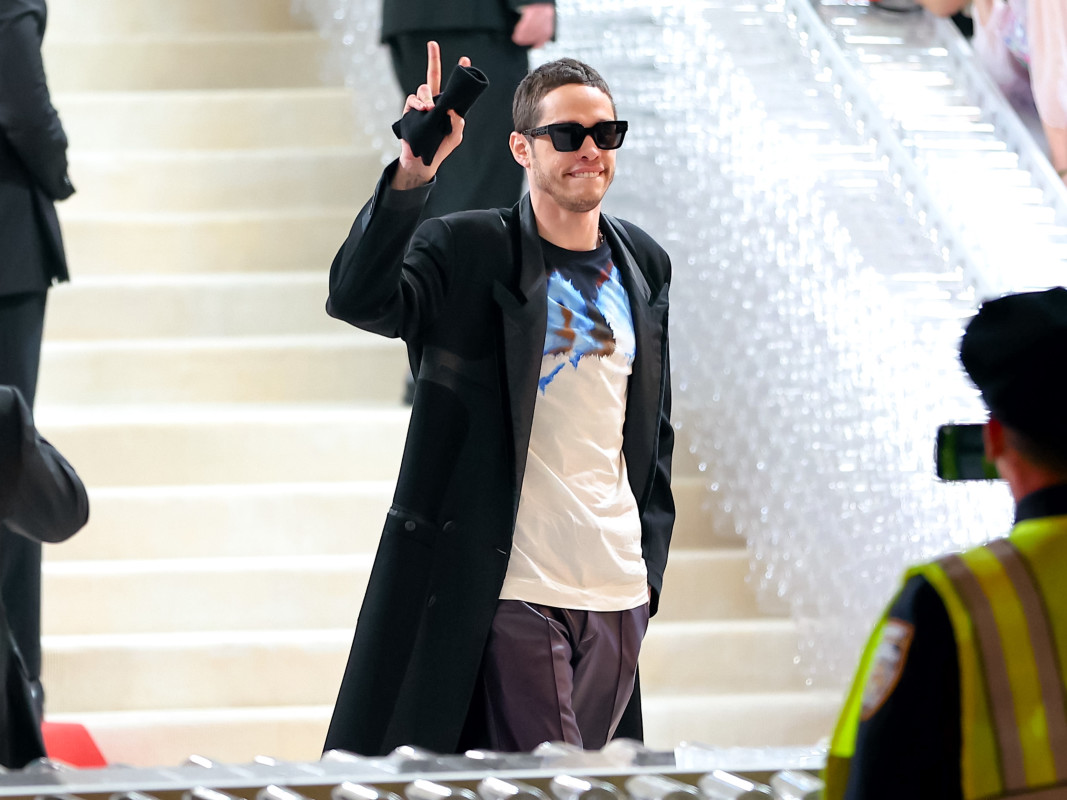
Kevin Gill (played by Pete Davidson)
In "Dumb Money", Kevin, Gill’s younger brother — played by "SNL’s" Pete Davidson — has a fairly significant side-character role.
Gill’s real-world brother claimed on Instagram that his character in the film, who is presented as a pot-smoking, car-borrowing, DoorDash-embezzling, loud-mouthed burnout, bears very little resemblance to its real-world counterpart. Kevin claims that the film was wrong on all counts—he’s always had a car, he detests marijuana, he’s never eaten food out of his customers’ deliveries, and he has a relatively reserved personality.
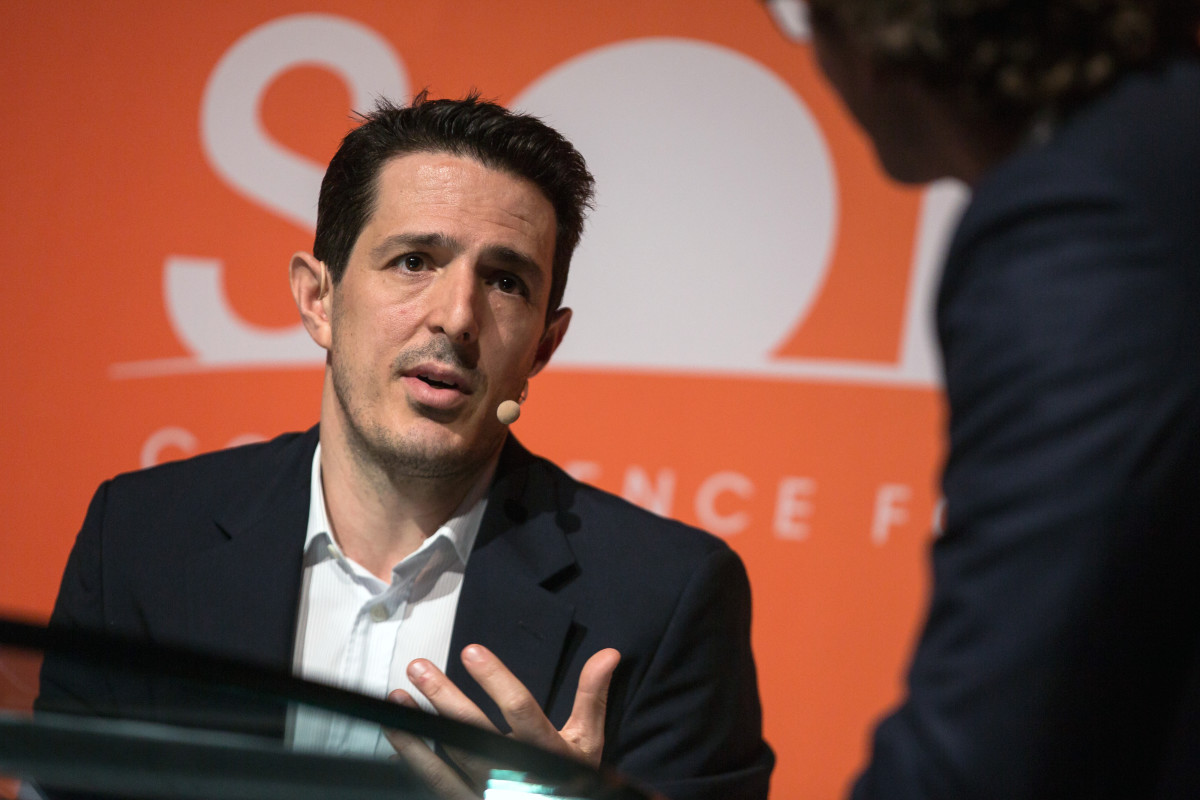
Gabe Plotkin (played by Seth Rogen)
Gabe Plotkin, depicted by Seth Rogen in "Dumb Money", was also a very real player in the GameStop saga. While many hedge funds lost money on GME shorts, Plotkin’s firm, Melvin Capital, was certainly the hardest hit.
Plotkin had actually been shorting GME via Melvin Capital since he founded the fund in 2014, years before Gill popularized the stock on r/WallStreetBets, and well before the term “meme stock” had emerged as a buzzword in investing circles.
The film dramatizes Plotkin’s slow realization that the retail-trader-driven surge in GameStop’s value posed a real threat to his fund’s short-heavy portfolio, resulting in last-minute requests for bailouts from Citadel and Point 72, other hedge funds run by Plotkin’s associates Ken Griffin and Steve Cohen, respectively. Griffin’s Citadel injected about $2 billion into Melvin, while Cohen’s Point 72 provided around $750 million.
Despite these bailouts, when all was said and done, Melvin ended up losing around $7 billion on its ill-fated GameStop shorts, closing out 2021 with its portfolio down around 39%. Due in part to these losses, Plotkin decided to shutter Melvin Capital in May of the following year, stating "The appropriate next step is to wind down the Funds by fully liquidating the Funds' assets and accounts and returning cash to all investors."
In one of the more memorable lines of the film, when asked by his wife how much money they lost during the previous day, Rogen (as Plotkin) replies, “one billion.”
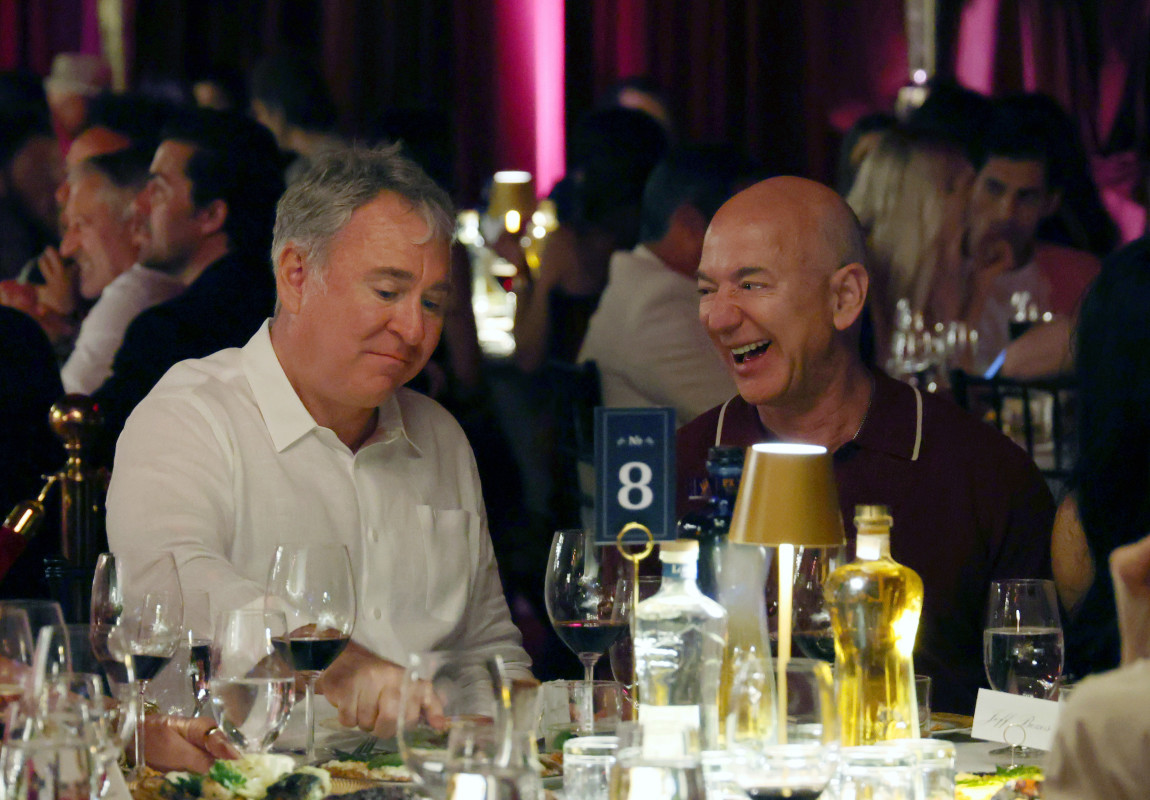
Kenneth C. Griffin (played by Nick Offerman)
Ken Griffin, played by "Parks and Rec’s" Nick Offerman in the film, is a real-life multi-billionaire who operates the hedge fund Citadel, LLC. and is the majority owner of the market maker Citadel Securities.
As mentioned above, Griffin provided Plotkin’s Melvin Capital with a $2 million dollar cash injection during the GME short squeeze, attracting the ire of Reddit’s retail investors. When Robinhood, the fee-free digital trading app through which many of these individual investors had bought GameStop stock, halted purchases of the video game retailer at the height of the short squeeze, Griffin and Citadel became the subject of even more criticism.
Not only did Griffin’s hedge fund, Citadel, have a vested interest in seeing GameStop stock plummet due to its position in Melvin Capital — Citadel Securities, Griffin’s market-making firm, was one of the main partners used by Robinhood to complete its users’ buy and sell orders.
Robinhood derived much of its payment-for-order-flow revenue through Citadel Securities, so many viewed the decision to halt buying as a shady move, perhaps done at Griffin’s behest. In fact, records showed that Griffin and Vlad Tenev, Robinhood’s CEO, had communicated the evening before GameStop buy orders were restricted by the broker, pointing to a potential conflict of interest and widespread accusations of market manipulation.
Whether this was indeed a calculated move or not, a GameStop selloff soon followed as holders of GME began to unload shares in a panic, hoping to lock in their gains before other sellers drove the stock’s price down.
Griffin starkly denied all accusations of wrongdoing when subpoenaed to a congressional hearing about GameStop in February 2021. Interestingly, he had previously donated money to four members of the congressional committee to which he presented his testimony during the GameStop hearing — Andy Barr, French Hill, Bill Huizenga, and Ann Wagner.

Steve Cohen (played by Vincent D'Onofrio)
Steve Cohen, played by Vincent D’Onofrio in "Dumb Money", is the owner of hedge fund Point 72, which he founded in 2014, the same year Gabe Plotkin, who many view as his protegé, founded Melvin Capital.
Cohen’s Point 72 injected $750 million into Melvin during the GameStop surge, a move that resulted in a barrage of online threats against him that culminated in his deactivating his Twitter account. Interestingly, his firm now has a long position in GameStop (despite betting against the retailer in 2021) according to a February 2023 filing.
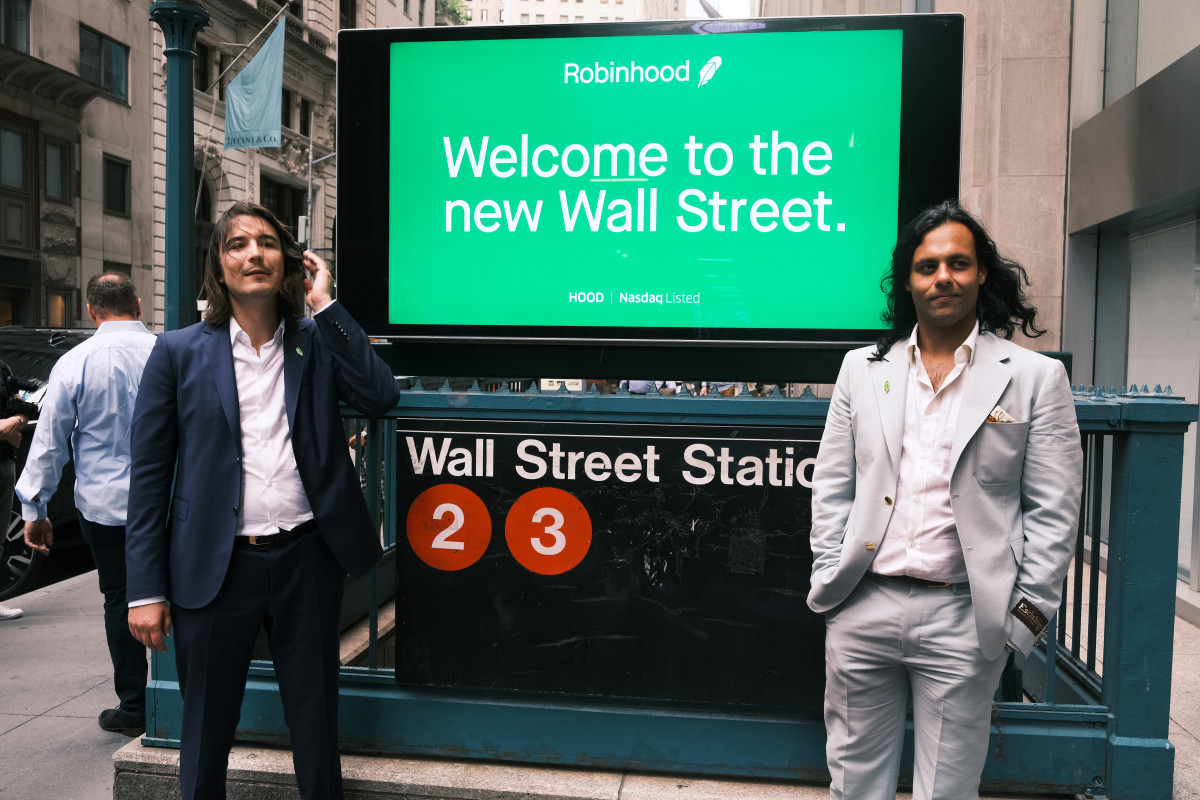
Vlad Tenev (played by Sebastian Stan) and Baiju Bhatt (played by Rushi Kota)
Vlad Tenev, the current CEO of Robinhood, is played by Sebastian Stan in the film, which depicts him and former co-CEO Baiju Bhatt (played by Rushi Kota) in a less-than-favorable light. The young tech magnates are portrayed as out of touch, referencing the Occupy Wall Street movement as their inspiration for creating a fee-free trading app but appearing to be unfamiliar with the movement’s actual goals and values.
In reality, Bhatt, who co-founded Robinhood with Tenev, stepped down as co-CEO in November 2020, before the primary portion of the Gamestop short squeeze really began, although he remains the company’s chief creative officer.
In the film, as in reality, Tenev sidesteps allegations of a conspiracy with Citadel CEO Griffin to shut down GME buying on Robinhood to tank the stock price during his address to Congress. During his testimony, Tenev stated that GME buy orders were restricted “In order to protect the firm and protect our customers.” He went on to claim that the move was made in order to meet the SEC’s net capital requirements, which “can be substantial in the current environment where there’s a lot of volatility and a lot of concentrated activity in these names that have been going viral on social media.”
Many r/WallStreetBets users doubted the veracity of Tenev’s claims, resulting in an exodus toward other digital brokerages among the subreddit’s users in the wake of the hearing. Nevertheless, Robinhood remains a major name in the trading industry, boasting 10.8 million active users and 23 million funded accounts as of the end of August. The company went public at $38 per share in July 2021 but didn’t see a profitable quarter until Q2 2023. As of this article’s last update, Robinhood stock was trading at $9.70 per share.
How accurate is 'Dumb Money'?
Overall, "Dumb Money" is a successful and fairly accurate retelling of the unprecedented meme-stock saga that forced institutional investors to finally start taking retail investors seriously. Gill, the hedge fund managers, and Robinhood’s executives, all of whom are very real people, feature most prominently in the plot.
The film also follows several retail investors who took part in the short squeeze, racking up oversized gains, and in some cases, waiting too long to sell and watching their positions lose the bulk of their value. These portrayals, however, are far more fictionalized, although elements of these characters are supposedly drawn from real investors’ stories.
It’s now up to moviegoers worldwide to determine whether "Dumb Money" will join the ranks of other highly successful Wall Street blockbusters like "The Big Short" and "The Wolf of Wall Street".





